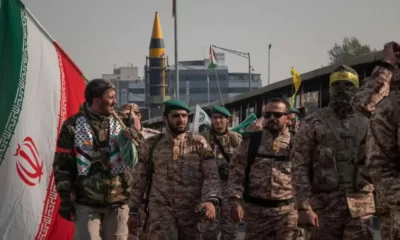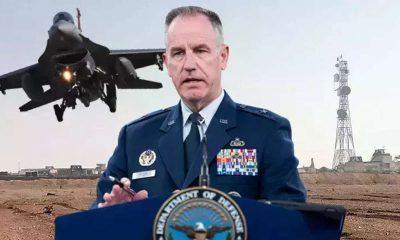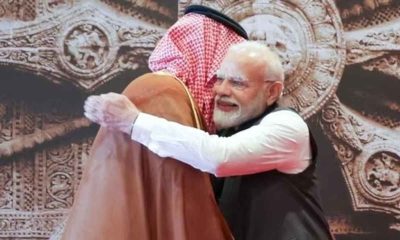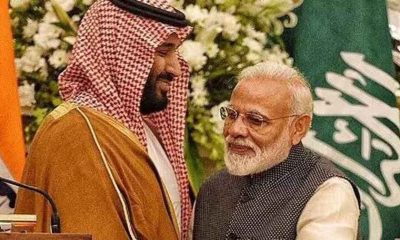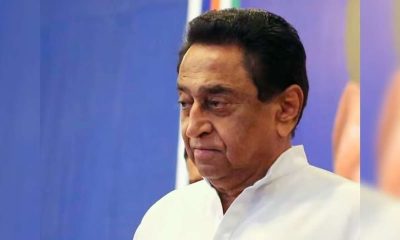Latest world news
Saudi-Iran ice cap shows signs of thaw
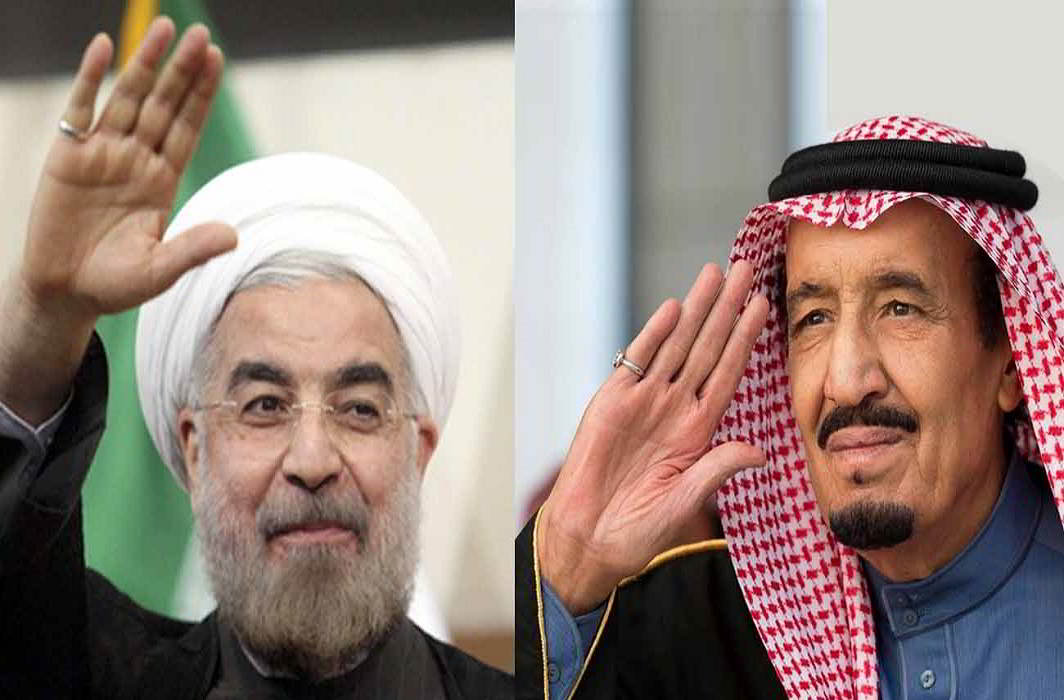
[vc_row][vc_column][vc_column_text]Quiet diplomacy on to bring the two warring countries closer
By Abu Turab
The advent of Donald Trump as the 45th President of United States has been accompanied by some interesting diplomatic moves in the Middle East, with arch rivals Saudi Arabia and Iran showing early inclination of rebuilding bilateral relations.
On January 25 Kuwaiti Emir Jabel al-Ahmed al-Sabah sent a “special message” to Iranian President Hassan Rouhani through his Foreign Minister. This was probably the outcome of early Riyadh-headquartered Gulf Cooperation Council’s (GCC) efforts to open channels of dialogue to bring the two countries together, says the credible news website Al-Monitor.
On December 1, 2016, Kuwait’s Deputy Foreign Minister Khaled al-Jarallah was quoted as saying that GCC was trying to send a message to Tehran for inviting both countries to dialogue. He also said that Kuwait will be transmitting the message to Iran and that “contacts with Iran are ongoing to set a convenient date to divert that message.” Other members of the regional Council are Qatar, Bahrain, United Arab Emirates and Oman.
A Tehran-based Press TV report says that Iranian President Hassan Rouhani, while receiving the Kuwaiti Foreign Minister, said that “the power and capabilities of Iran have always been aimed at safeguarding regional security and stability and supporting neighbours.” He also reiterated Tehran’s commitment to supporting “any measures” that would promote regional stability and security.
On January 14, Iraq’s Foreign Minister Ibrahim al-Jaafari, while speaking to Islamic Republic of Iran Broadcasting (IRIB), disclosed that he has been carrying out certain mediatory measures since last year to help improve relations between Iran and Saudi Arabia. He further said that any crisis in the Iran-Saudi relations affects Iraq as well and a rapprochement between the two countries would benefit Iraq.
He disclosed that he has carried oral messages between Iranian and Saudi officials in the past few months and added that his country would make efforts to bring the positions of Tehran and Riyadh closer.
Ties between Tehran and Riyadh took downturn after a deadly human crush occurred during Hajj rituals in September 2015. Some 465 Iranians were among 4,700 killed in the tragedy. Iranians’ violent reaction to Saudi Arabia prosecuting Shia cleric Sheikh Nimr al-Nimr, was witnessed when protesters set fire to some portion of the Saudi Embassy in Tehran on January 2, 2016. Similar protest was also reported from Mashhad. Saudi Arabia unilaterally severed its diplomatic ties with Iran after the protests.
A large number of pilgrims from different countries were still being claimed by Saudi authorities as ‘missing.’ Over a hundred Indian pilgrims were killed and 32 remained missing in the tragedy.
In one analysis, Al-Monitor says that on January 17 Iranian president Hassan Rouhani hailed the efforts of at least a dozen countries, including Iraq and Kuwait for offering to mediate between Iran and Saudi Arabia. He expressed his willingness to be on good terms with everyone, especially the Gulf states and Saudi Arabia. Earlier, Iran’s secretary of the Supreme National Security Council Ali Shamkhani and Foreign Minister Mohammad Javad Zarif had also expressed their desire to renew relations with Saudi Arabia.
The first breakthrough in Tehran-Riyadh relations was witnessed on September 28, 2016 when the Organization of Petroleum Exporting Countries (OPEC) agreed to curb oil production during the meeting in Algiers. The agreement resulted in the largest cut in oil production since 2008 forcing considerable price rise in the international market.
The agreement was possible only through a major Saudi concession which exempted Iran from capping production. As OPEC’s dominant producer, the Saudi’s wield enough clout to provide such a concession.
Recently on January 10, Head of Iranian Hajj Mission Syed Ali Qadi Askar announced receiving an invitation via Saudi Arabia’s consulate in New York to hold meetings to discuss plans for this year’s Hajj.
Iran had boycotted Hajj 2016 for not getting security guarantee of their nationals after the tragic death of its 465 nationals in the Hajj stampede 2015. Iran claimed the total number of Hajj pilgrims killed in the tragedy were 4,700 while Saudi authorities gave the total number of deaths at only 700. Earlier, 11 Iranian pilgrims were among more than 100 killed in a massive construction crane collapse in Mecca’s Grand Mosque.[/vc_column_text][/vc_column][/vc_row]
Latest world news
Bigg Boss 14 contestant Rahul Vaidya struggles walking in knee deep water, compares Dubai rains with Mumbai floods
Singer and TV personality Rahul Vaidya was recently stranded in the Dubai rains.

Rahul Vaidya, who was in Dubai ahead of his show which was scheduled to take place today, left the country due to heavy rains and reached Kolkata. The artist shared on social media his encounters in the UAE city, including challenges like walking through knee-deep water. Rahul provided an update regarding the heavy rainfall in Dubai on his Instagram profile.
The Bigg Boss 14 contestant revealed that he was in Kolkata and prepared to do an evening performance. Recalling the terrifying period he went through, Vaidya said there was a lot of confusion and panic in Dubai. The situation was similar to that when heavy floods hit Mumbai in 2005.
Vaiday also posted seval other images and videos of cars that were underwater and flooded roadways. The Bigg Boss 14 contestant, who shared his ordeal, claimed that even though it had just rained for two hours, the situation was dire.
In one of the video, which went viral he can be seen struggling in walking in knee-deep water. He can be also seen holding his sneakers in one hand and with other hand he was seen managing other things.
This is the result of the two hours of rain that it had, he can be heard saying in the video. Vidya also said he dosen’t believe Dubai is accustomed to a lot of rain. Everything had stopped working, he remarked.
After taking part in the first season of the singing reality show Indian Idol, Rahul Vaidya gained widespread recognition. In addition to Bigg Boss, he took part in Khatron Ke Khiladi 11.
Meanwhile, heavy rains that triggered flooding in the UAE and Bahrain, which left 18 people dead in Oman on Sunday and Monday, have paralyzed the financial hub of the Middle East, Dubai.
A lot of incoming flights were diverted from Dubai’s international airport because of the rain. At 7:26 p.m., the busiest airport in the world for foreign visitors stopped accepting new arrivals; a gradual resumption was announced for more than two hours later.
Images of planes navigating flooded tarmacs are making the rounds on social media.
According to pictures shared on social media, the flagship malls Dubai Mall and Mall of the Emirates both experienced heavy floods, while at least one Dubai Metro station had water up to the ankles.
There were several road collapses, severe flooding in residential areas, and numerous reports of leaks from windows, doors, and roofs.
Due to the unfavourable weather, schools around the United Arab Emirates were forced to close, and as more storms are predicted, the closures are anticipated to last until Wednesday. The government of Dubai allowed its staff to work remotely till this Wednesday.
Latest world news
Dubai sky turns green during storm in UAE, video goes viral
The UAE witnessed record-breaking rainfall on Tuesday and the National Centre of Meteorology recorded 254 mm of rainfall in less than 24 hrs in the Khatm Al Shakla area in Al Ain.

1 person was killed in UAE as it witnessed heavy rainfall on Tuesday, stranding commuters, flooding roads, disrupting trains and flights and resulting in water leakage from mall ceilings. The UAE witnessed record-breaking rainfall on Tuesday and the National Centre of Meteorology recorded 254 mm of rainfall in less than 24 hrs in the Khatm Al Shakla area in Al Ain. It is being said that the rainfall was the highest documented since the start of data collection in 1949.
The heavy rainfall in UAE came days after a similar situation in neighbouring Oman, where 13 people were killed in flash floods. Many parts of Oman saw torrential rains, which caused students to be trapped in buses and swept away motorists and trapped people in their homes.
Videos from Dubai circulating on social media showed widespread waterlogging on roads in Abu Dhabi, Dubai and other important cities. This left daily commuters in cars and other vehicles struggling to get back home. Dubai metro station too was seen flooded and closed.
One such video circulating on social media shows the aerial view of the city of Dubai from the top of a building. In the video the stormy winds are seen blowing over the city of Dubai. As the storm intensifies the Dubai sky turns green and ultimately gets covered by heavy rainfall. The video has gone viral on social media with more than 1.1 million views.
Another video showed water leakage from the ceilings of shopping malls, flooding the floors and destroying goods. A video which was shot in the famous Mall of the Emirates, showed pieces of ceiling falling as the rainwater gushed inside. Videos from many outlets of the Deira City Centre mall chain showed escalators being rendered unusable. Majid Al Futtaim, the company which owns the Mall of Emirates, said that the shopping complexes have been kept open and the customers are being sent away from the flooded areas.
India News
Sri Lankan Minister Douglas Devananda says statements on reclaiming Katchatheevu island from Sri Lanka have no ground
Devananda told the media on Thursday that it is not unusual to hear such claims and counterclaims about Katchatheevu as elections are taking place in India.
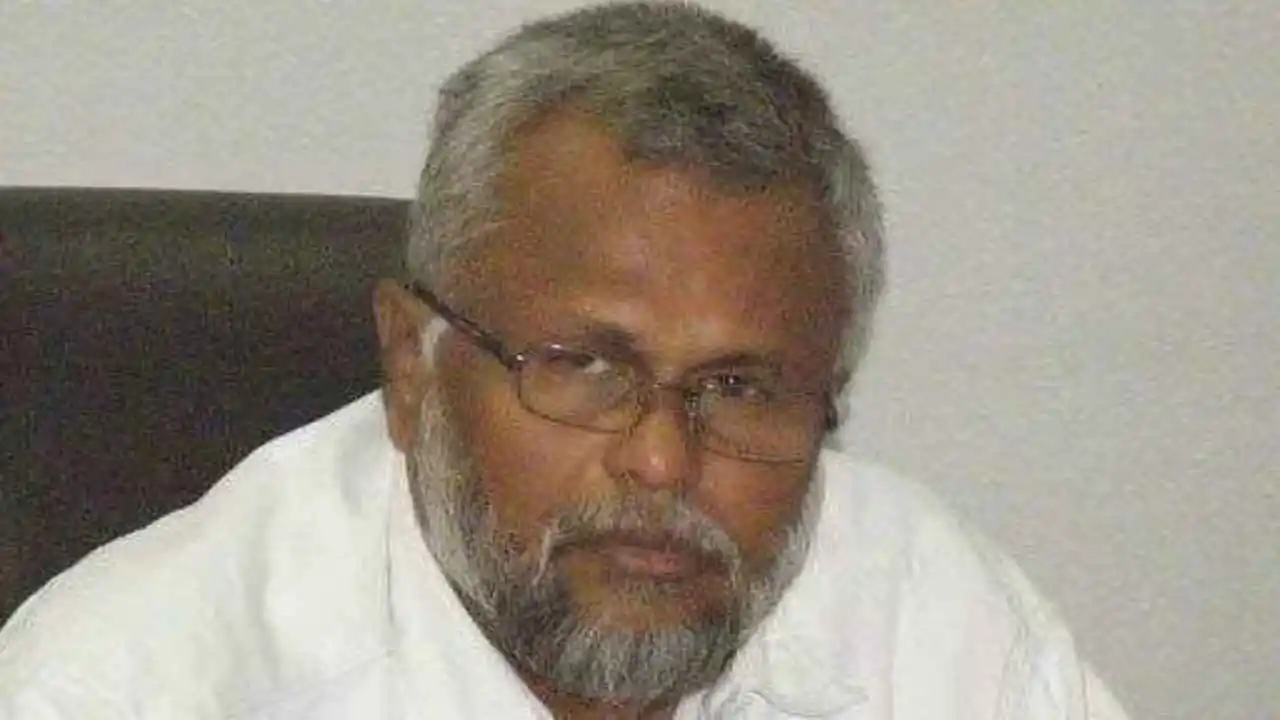
Sri Lankan Minister Douglas Devananda has said the statements from some political leaders in India on reclaiming Katchatheevu from the island nation have no ground. He told the media on Thursday that it is not unusual to hear such claims and counterclaims about the strategic island as elections are taking place in India.
The Sri Lankan Minister said he thought India is acting on its interests to secure this place to ensure Sri Lankan fishermen would not have any access to that area and that Sri Lanka should not claim any rights in that resourceful area. According to the 1974 agreement, Devananda said Indian and Sri Lankan fishermen can go fishing in the territorial waters of both countries until the pact was reviewed and amended in 1976.
The amended agreement resulted in fishermen from both countries being barred from fishing in neighboring waters. India’s ministry of External Affairs (MEA) on Thursday steered clear of the row surrounding Katchatheevu island. To a volley of questions on the Katchatheevu issue, MEA spokesperson Randhir Jaiswal reffered to External affairs Minister S Jaishankar’s recent comments on the matter.
He said he would like to talk about the issue that has been raised. He added the External Affairs minister has spoken to the press here in Delhi and also in Gujarat and has clarified all the issues. He said everyone should look into the press engagements and they would find the answers to their questions there.
The remarks from Devananda, a Sri Lankan Tamil, came days after the Narendra Modi government accused the Congress and its ally DMK in Tamil Nadu of overlooking national interests by handing over Katchatheevu island to Sri Lanka in 1974. The BJP has also been slamming the 2 parties for not ensuring the rights of the fishermen wanting to fish in waters around the island.
-
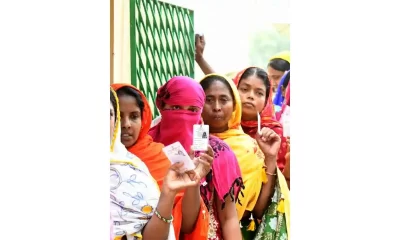
 2024 Lok Sabha Elections9 hours ago
2024 Lok Sabha Elections9 hours agoPrime Minister Narendra Modi urges citizens to vote in record numbers as voting for first phase of Lok Sabha elections begins on 102 seats across India
-
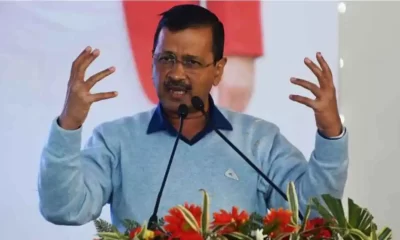
 India News23 hours ago
India News23 hours agoEnforcement Directorate says Arvind Kejriwal is deliberately eating mangoes, sweets, taking sugar with tea to increase his blood sugar level and create ground for bail
-

 2024 Lok Sabha Elections7 hours ago
2024 Lok Sabha Elections7 hours agoKamal Haasan, Rajinikanth, Vijay Sethupathi, Dhanush vote in Chennai
-

 2024 Lok Sabha Elections8 hours ago
2024 Lok Sabha Elections8 hours agoLok Sabha elections 2024: Google Doodle marks the start of polls with index finger voting symbol
-
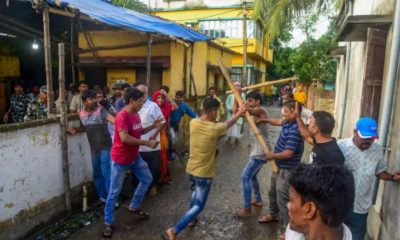
 2024 Lok Sabha Elections7 hours ago
2024 Lok Sabha Elections7 hours agoLok Sabha elections 2024: TMC, BJP workers clash in West Bengal’s Cooh Behar ahead of voting
-

 2024 Lok Sabha Elections6 hours ago
2024 Lok Sabha Elections6 hours agoLok Sabha elections 2024: Newly married couple cast vote in Jammu and Kashmir’s Udhampur, video goes viral
-

 2024 Lok Sabha Elections6 hours ago
2024 Lok Sabha Elections6 hours agoTamil Nadu BJP chief K Annamalai says party will sweep Karnataka and emerge victorious in Telangana, accuses DMK, AIADMK of influencing voters in Coimbatore
-
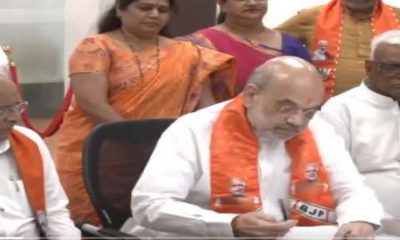
 2024 Lok Sabha Elections5 hours ago
2024 Lok Sabha Elections5 hours agoLok Sabha elections 2024: Amit Shah files nomination from Gandhinagar



